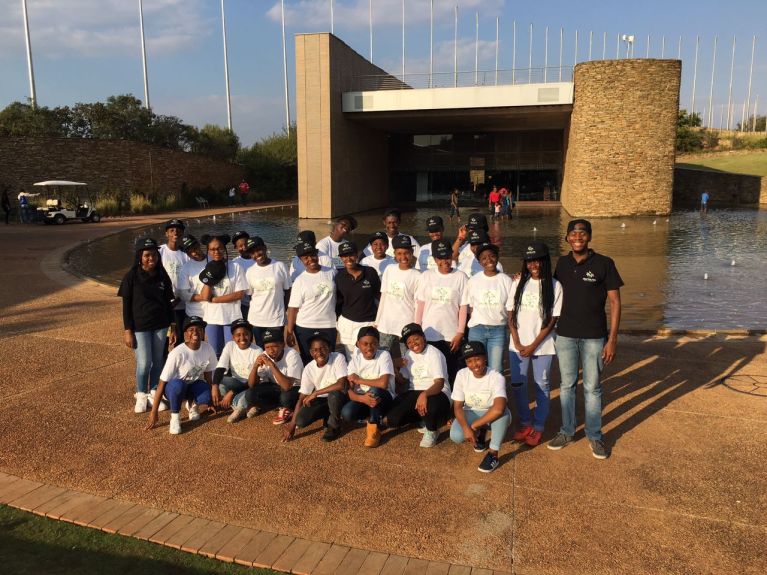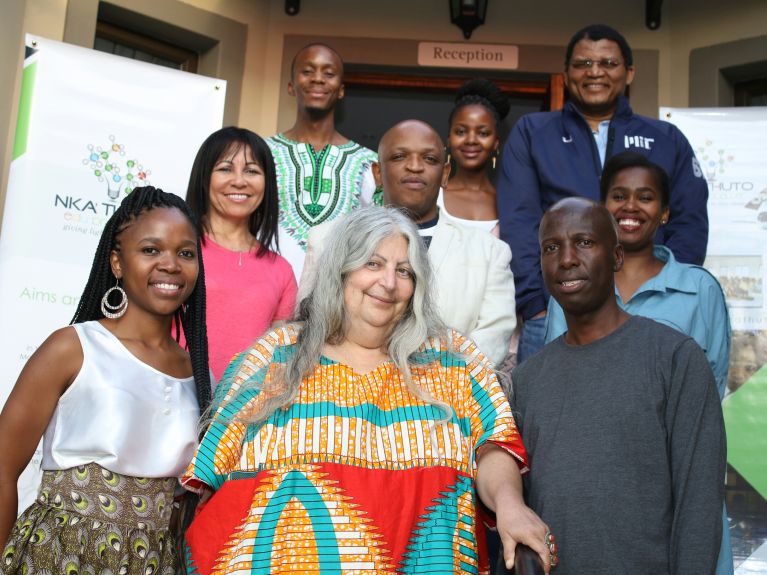Nka'Thuto EduPropeller, South Africa
The project aims to spark an interest in Science, technology, engineering and mathematics (STEM) subjects and careers amongst previously disadvantaged communities.

Project name: Nka'Thuto EduPropeller
Project location: Nka'Thuto EduPropeller's head offices are in Johannesburg but it operates around the whole country of South Africa.
Facebook: https://www.facebook.com/nkathuto/
Twitter: https://twitter.com/nkathuto_edu?lang=en
Instagram: https://www.instagram.com/nkathuto_edu/
Dieses YouTube-Video kann in einem neuen Tab abgespielt werden
YouTube öffnenThird party content
We use YouTube to embed content that may collect data about your activity. Please review the details and accept the service to see this content.
Open consent formProject description:
Nka’Thuto EduPropeller is a project that aims to spark an interest in Science, technology, engineering and mathematics (STEM) subjects and careers amongst previously disadvantaged communities and demographics in South Africa (SA). We focus particularly on grades 4 to 11 learners in schools situated in rural and township areas. The program upgrades the sparked interest amongst learners into practical skills where learners are invited to identify societal problems and solve those problems using STEM principles. Learners with projects with the most potential are invited to convert their research solutions to a device, product or service that can form the basis of the inception of entrepreneurial ventures.
The social challenge we are solving is in the education system. Learners at basic education level battle with STEM subjects so much that there is a general withdrawal from learners to take these subjects. At university level, the number of students who graduate with STEM related qualifications is also low. These challenges spill over into the post graduate level where we see even lower numbers of students getting to the doctoral degree level. The worst of this scenario is that the demographic most affected by these challenges are amongst learners and individuals who come from previously disadvantaged areas. One of the main contributing factors to this is the fact that prior to South Africa gaining its independence and freedom in 1994, black citizens of the country were prohibited by law to go into STEM fields with the belief that black people did not have the necessary intellect to cope with these fields. The majority of the citizens of South Africa are therefore playing catch up in these amazing fields which not only enable people to solve the most complex societal problems but are also not able to compete in the knowledge economy. With the 4th industrial revolution being eminent, it becomes important now more than ever before to equip the masses for the national system of innovation and increase the employability of the majority of the citizens of this country which also happens to be composed of approximately 65% of black youths in the age range of 16 to 35. Sadly, all this also means that there are not enough role models in the STEM fields for our youngsters from these backgrounds.

Goal and purpose of the project:
Our goal is to create a generation of young leaders who reside in various strata of the country and later the continent. A generation of young innovators who understand that value of their innovations and the ability of these innovations to not only change lives but to contribute to the development of the GDP. The continent of Africa needs to produce employers rather than youths who are all waiting for social grants and handouts. We are developing a generation of lifelong learners and a network of young people who propel education, innovation and entrepreneurship.
More specifically the following are the objectives of our project:
Objective 1:
To spark an interest in the science, technology, engineering and mathematics (STEM) careers amongst learners.
Objective 2:
Expose learners to the process of research for the purpose of finding a viable solution to an unmet need in society.
Objective 3:
Facilitate learners to translate their research findings into business solutions with the potential to reach commercialisation.
Use of prize money:
The prize money will be used for all our beneficiary students to attend a field trip at the Council for Scientific and Industrial Research (CSIR). The CSIR is the largest science council in the continent of Africa. It house over 1500 scientists and engineers from over 150 different fields of STEM. The CSIR uses STEM principle to solve societal problems with the aim of improving the quality of life of the citizens of the country, continent and the world.
One of the biggest challenges facing learners from previously disadvantaged backgrounds is a lack of exposure and this field trip will enable us to expose them. Ultimately, this will channel them into making more sound decisions about their career choices which will be informed by the exposure that they will gain from the trip. We believe in teaching the learners to find ways to emancipate themselves rather than to continuously be receiving hand outs. Such trips will motivate and inspire our learners to become problem solvers and leaders in their communities.
